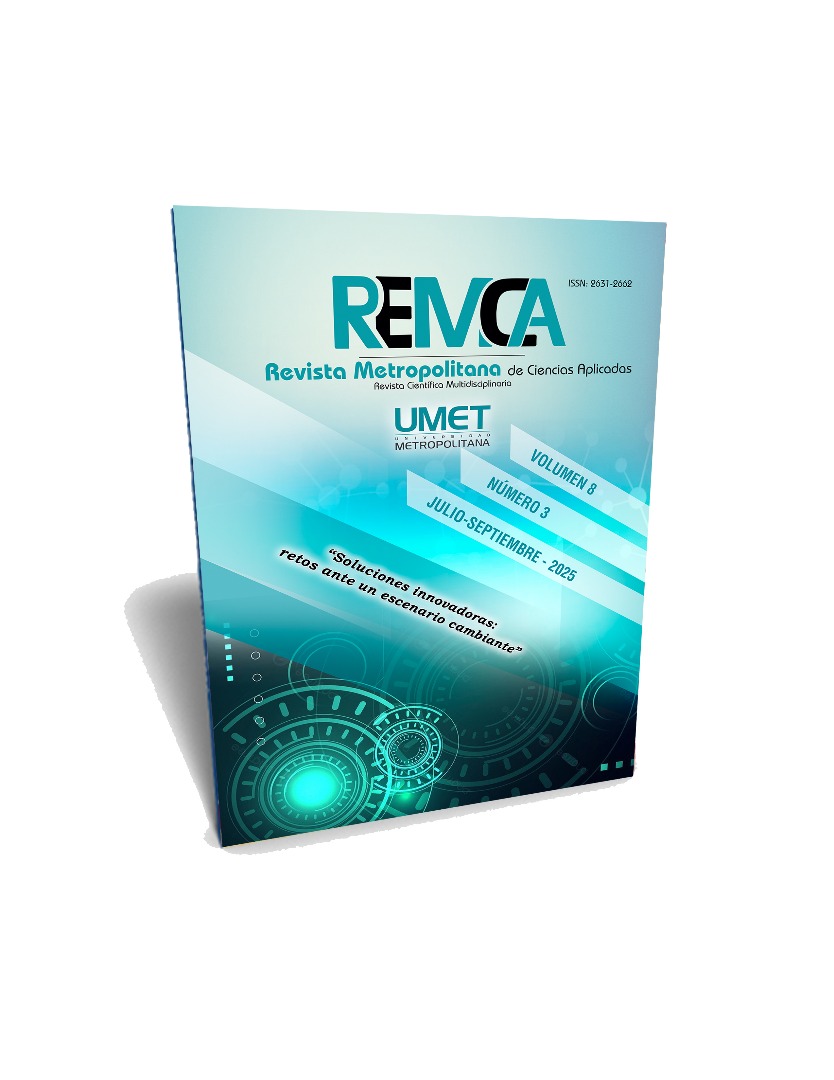Análisis jurídico de los factores determinantes del abandono de animales de compañía en Tulcán, Ecuador
DOI:
https://doi.org/10.62452/y11mz694Keywords:
Animal abandonment, responsible pet ownership, animal protection, animal welfare legislation, legal sanctionsAbstract
The abandonment of companion animals represents a social and legal issue with serious implications for animal welfare, public health, and ecological balance. In Ecuador, despite the existence of animal protection regulations, there are persistent deficiencies in their enforcement and public awareness. This study aimed to analyze the determining factors of companion animal abandonment in the province of Carchi, specifically in the city of Tulcán. A quantitative, descriptive, and cross-sectional research design was employed, based on a structured survey applied to a representative sample of the local population. The survey, developed from a literature review and expert consultation, included ten closed-ended questions about knowledge, perceptions, and attitudes towards abandonment and current legislation. The results showed that a high percentage of respondents were unaware of animal protection regulations and applicable sanctions. Moreover, the majority considered that current sanctions are not severe enough to deter animal abuse and abandonment. Broad public support for stricter measures, such as increased fines and the implementation of prison sentences for severe cases, was identified. In conclusion, the findings highlight the need to strengthen legislation and its dissemination, as well as to implement educational campaigns that promote responsible pet ownership and respect for animals, in order to reduce the incidence of abandonment in the city of Tulcán.
Downloads
References
Caicedo, N. (2019). Revisión sistemática de legislación relacionada con la veterinaria en el Ecuador mediante el uso de diagrama de flujo del prisma. (Tesis de licenciatura). Universidad de las Américas.
Coral, M., & Martínez, A. (2023). El alcance del reconocimiento de los animales como sujetos de derechos aA partir de la jurisprudencia constitucional ecuatoriana NO. 253-20-JH/22. Actualidad Jurídica Ambiental, (137). https://doi.org/10.56398/ajacieda.00337
Ecuador. Asamblea Nacional Constituyente. (2008). Constitución de la República del Ecuador. Registro Oficial N. 449. https://jprf.gob.ec/wp-content/uploads/2023/03/1.-Constitucion-de-la-Republica-del-Ecuador-2.pdf
Gómez Francisco, T., Cardozo Pozo, R., & González Marino, I. (2023). Interdisciplinariedad dialéctica entre el Derecho Penal y el Derecho Animal: transferencia de la categoría de bien jurídico . DALPS (Derecho Animal-Animal Legal and Policy Studies), 1, 58–84. https://doi.org/10.36151/DALPS.003
Hugues Hernandorena, B., Ledón Llanes, L., Mendoza Trujillo, M., Torres López, M. A., & Berovides, V. (2023). La tenencia de animales de compañía en el contexto de la pandemia del covid-19: revisión de estudios. Revista De Medicina Veterinaria, 1(46). https://doi.org/10.19052/mv.vol1.iss46.5
Llerena Cepeda, M. L., Sailema López, L. K., & Zúñiga Cárdenas, G. A. (2022). Variantes de COVID-19 predominates en Ecuador y sus síntomas asociados. Universidad y sociedad, 14(S3), 93-104. https://rus.ucf.edu.cu/index.php/rus/article/view/2939
Ponce León, J. J. (2020). Animalismos en el Ecuador: historia política y horizontes de sentido en disputa. Cartografías Del Sur. Revista De Ciencias, Artes Y Tecnología, (12). https://doi.org/10.35428/cds.vi12.197
Sleeman, J. M., DeLiberto, T., & Nguyen, N. (2017). Optimization of human, animal, and environmental health by using the One Health approach. Journal of Veterinary Science, 18(S1), 263-268. https://doi.org/10.4142/jvs.2017.18.S1.263
Solano-Gómez, R., & Mora, J. M. (2023). Conflictos entre humanos y fauna silvestre en una zona de amortiguamiento de San Ramón, Costa Rica. Cuadernos de Investigación UNED, 15(1), 1-16. http://dx.doi.org/10.22458/urj.v15i1.4462
Villalba-Briones, R., Mendoza, P., Garces, D., Belen Molineros, E., Monros, J. S., & Shanee, S. (2024). Synergistic Threats to Wild Fauna in Ecuador: Using a Novel Data Source to Estimate the Impacts of Trafficking and Human–Wildlife Conflict. Diversity, 16(8), 490. https://doi.org/10.3390/d16080490
Downloads
Published
Issue
Section
License
Copyright (c) 2025 Esteveen Raúl Villarreal-Lugmaña, Carmen Marina Méndez-Cabrita, Paula Camila Solarte-Chugá, Joseline Micaela Chugá-Montenegro (Autor/a)

This work is licensed under a Creative Commons Attribution-NonCommercial-ShareAlike 4.0 International License.
Authors who publish in Revista Metropolitana de Ciencias Aplicadas (REMCA), agree to the following terms:
1. Copyright
Authors retain unrestricted copyright to their work. Authors grant the journal the right of first publication. To this end, they assign the journal non-exclusive exploitation rights (reproduction, distribution, public communication, and transformation). Authors may enter into additional agreements for the non-exclusive distribution of the version of the work published in the journal, provided that acknowledgment of its initial publication in this journal is given.
© The authors.
2. License
The articles are published in the journal under the Creative Commons Attribution-NonCommercial-ShareAlike 4.0 International License (CC BY-NC-SA 4.0). The terms can be found at: https://creativecommons.org/licenses/by-nc-sa/4.0/deed.en
This license allows:
- Sharing: Copying and redistributing the material in any medium or format.
- Adapting: Remixing, transforming, and building upon the material.
Under the following terms:
- Attribution: You must give appropriate credit, provide a link to the license, and indicate if any changes were made. You may do this in any reasonable manner, but not in any way that suggests the licensor endorses or sponsors your use.
- NonCommercial: You may not use the material for commercial purposes.
- ShareAlike: If you remix, transform, or build upon the material, you must distribute your creation under the same license as the original work.
There are no additional restrictions. You may not apply legal terms or technological measures that legally restrict others from doing anything the license permits.




